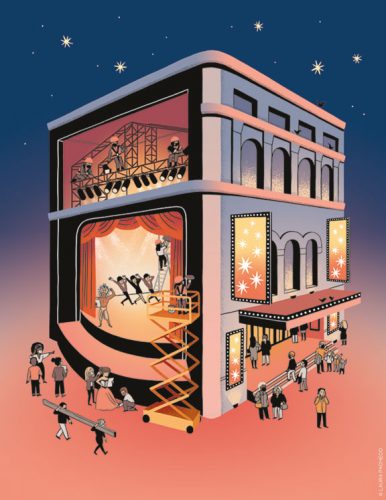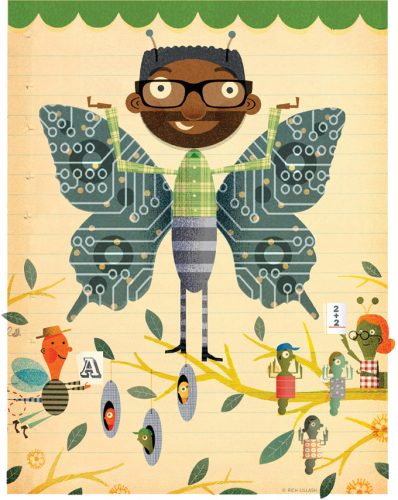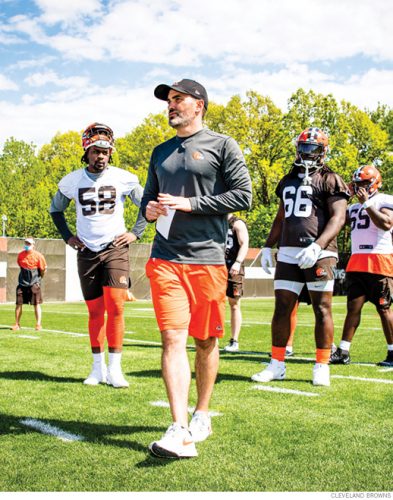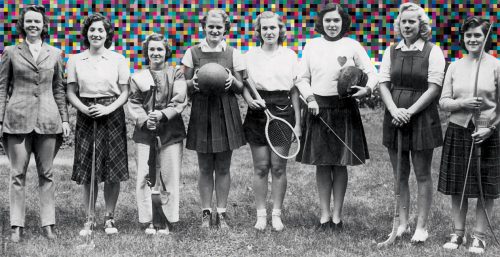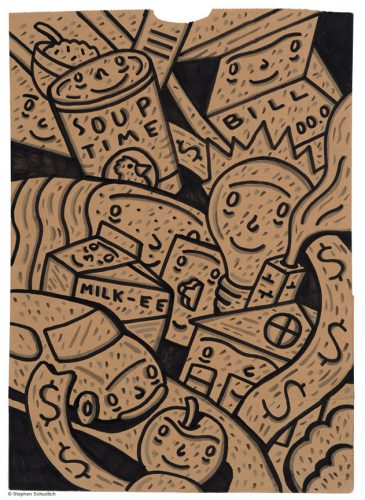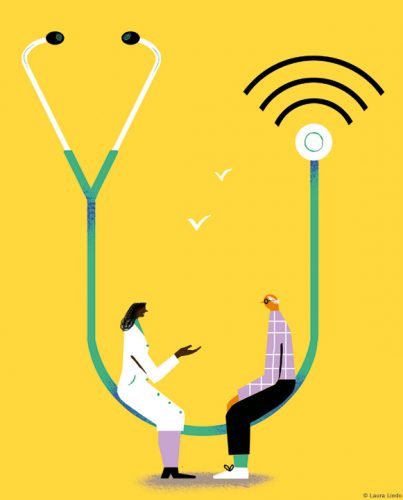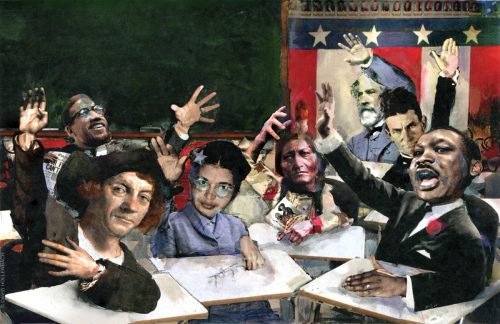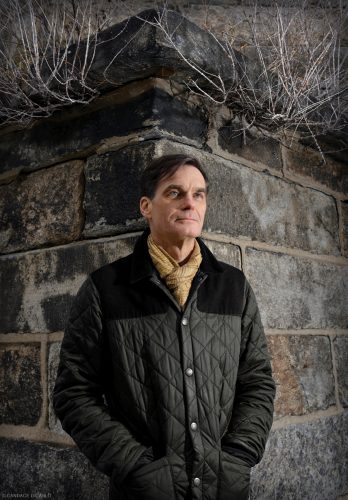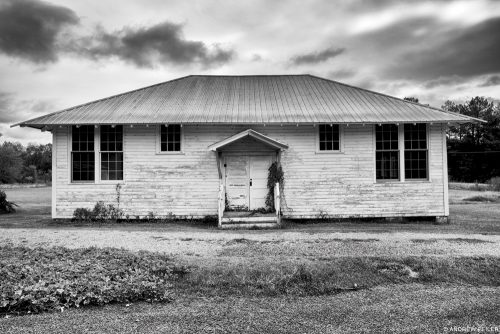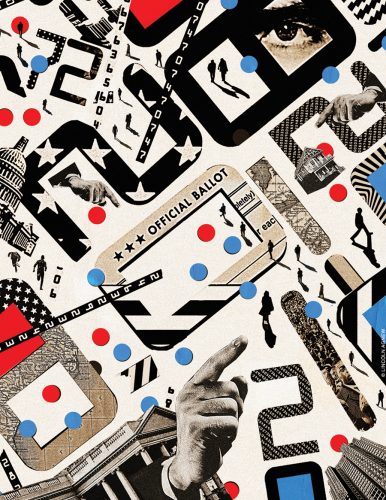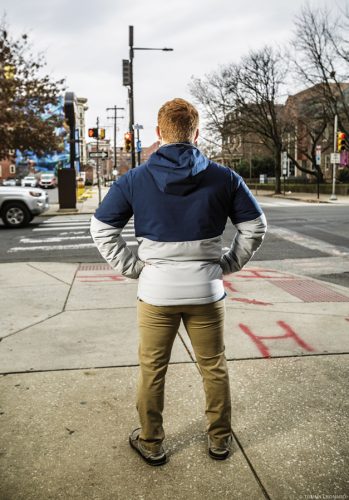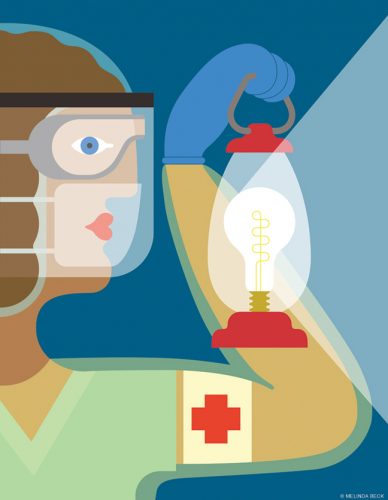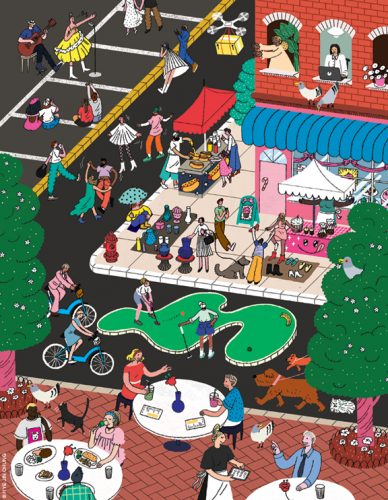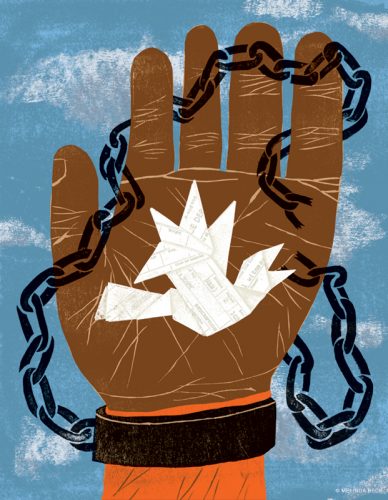Curtain Up!
After an 18-month hiatus, live theater has returned to the American stage. Alumni active in producing shows on Broadway and elsewhere reflect on the pandemic’s onset, its impact on them and their industry, and what the future holds.
“Things Look Different in Lamplight”
On the occasion of the 40th anniversary of the publication of The Chaneysville Incident, David Bradley C’72 (aka “The Author Of”) reflects on his acclaimed novel’s genesis and composition—and how the passage of time has made a historical fiction out of a work set in the present looking at the past.
(Re)Introduction to US History
How two Penn professors revamped the entry-level history class for an age of instant information access and endless quarrels over the meaning of America’s past.
Opening Doors
From early education to college prep, three entrepreneurial alumni are forging new paths to support online learning and enrichment.
The Cleveland Comeback
Inspired by his Penn football mentors and his father—a former Quakers’ basketball player—Kevin Stefanski C’04 rocketed through the NFL to become one of the league’s youngest head coaches. Now, after leading the Cleveland Browns to their first playoff win in 26 years, the reigning NFL Coach of the Year hopes to turn the long-tortured franchise into a perennial contender.
Century Club
As the University celebrates 100 years of women’s sports, a handful of prominent former student-athletes recall their athletic triumphs and hurdles—and the paths they both followed and paved.
The Raven and Rico Worl
When the United States Postal Service tapped him to design a “Forever” stamp, Rico Worl took another step in his metamorphosis from cultural anthropologist to commercial artist.
Choice and Change
We know what we should do when it comes to leading healthier and happier lives. But too often we default to easier, more pleasurable wants. Behavioral scientist and Wharton professor Katy Milkman is determined to help us change for the better—and for good.
Fighting Poverty With Cash
Several decades since the last big income experiment was conducted in the US, School of Social Policy & Practice assistant professor Amy Castro Baker has helped deliver promising data out of Stockton, California, about the effects of giving people no-strings-attached money every month. Now boosted by a new research center at Penn that she’ll colead, more cities are jumping on board to see if guaranteed income can lift their residents out of poverty. Will it work? And will policymakers listen?
The Vaccine Trenches
Key breakthroughs leading to the powerful mRNA vaccines against COVID-19 were forged at Penn. That triumph was almost 50 years in the making, longer on obstacles than celebration, and the COVID-19 vaccines may only be the beginning of its impact on 21st-century medicine.
Webside Manner
Virtual healthcare by smartphone or computer helps physicians consult with and diagnose patients much more quickly, while offering them convenience and flexibility. The potential to save lives and improve efficiencies is tremendous. But can uncertain regulations and reimbursements, equity and access disparities, and shaky internet connections be surmounted?
Writing Lives
Middle school memories. Meditations on motherhood. A prismatic accounting of the self. A long life well and furiously lived: on new memoirs by Jordan Sonnenblick C’91, Courtney Zoffness C’00, Beth Kephart C’82, and Nick Lyons W’53.
The History Wars
Education scholar Jonathan Zimmerman on how the US republic lost the ability to understand itself—and how we can help our children recover it.
The Humanist Is In
In a new book, Jason Karlawish GM’99, codirector of the Penn Memory Center, unravels the tapestry of Alzheimer’s science and history, and outlines the medical, social, and ethical challenges that lie ahead.
Black Education Before Brown
Andrew Feiler W’84 documents the Rosenwald schools, which educated hundreds of thousands of African Americans in the Jim Crow South.
Calling It
How John Lapinski and a squad of Penn faculty and students backing him up on the NBC News Decision Desk navigated an election season that was unprecedented—and could set a pattern for the future.
Wellness Warriors
In response to a rash of suicides in recent years, Penn students have fought to take charge of their own mental health, creating new peer-to-peer counseling groups and collaborating more closely with the administration on wellness initiatives. Is it enough to combat the pandemic stresses, burnout, and social isolation that afflict “the loneliest generation”?
In Nursing We Trust
The past year has propelled America’s most trusted profession into the spotlight, with the World Health Organization’s designation of 2020 as the Year of the Nurse and Midwife followed by the unprecedented and continuing challenges posed by COVID-19. Penn Nursing alumni and faculty weigh in on coping with the pandemic and on nursing’s essential—and expanding—place in the healthcare system.
Heard at Homecoming
Voices from a fall celebration (wait for it) … like no other.
The Museum Prescription
Doctors are worn down by paperwork and long hours, forced to focus on computer screens instead of their patients, plagued by feelings of eroding autonomy, traumatized by a pandemic—and trained to endure suffering with stoicism. What ails physicians bodes ill for their patients. Can the visual arts help revive their well-being? A year-long initiative from Penn Medicine and Philadelphia’s flagship art museums aims to test the theory at internet scale.
The Mother of Coronaviruses
When SARS-CoV-2 struck, Susan Weiss was ready. The decades of work that she and a small cohort of fellow researchers have devoted to coronaviruses, despite limited funding and little respect, have been invaluable in speeding the search for treatments and vaccines. It’s been a rare stroke of good fortune in the current crisis—and a lesson in the importance of supporting basic science in anticipation of future ones.
Lapping Up a Final Act of Love
When the time came to say goodbye to our dog, Brad Bates V’10 arrived at our doorstep. A palliative care veterinarian specializing in in-home euthanasia, he meets strangers every day at their saddest moments—and it somehow gives him strength.
A Reset for Cities?
The novel coronavirus has been especially tough on America’s cities—stripping away cultural and social amenities and spotlighting stark realities of income inequality, inadequate healthcare, and punitive policing. Alumni and faculty experts weigh in on whether and how they can be reimagined for a post-pandemic world.
Connecting the Data
Penn’s Quattrone Center for the Fair Administration of Justice is pioneering a systemic, data-driven approach to criminal justice reform. Its executive director, John Hollway, started with the idea that the law should function more like science—less argument, more truth seeking.

